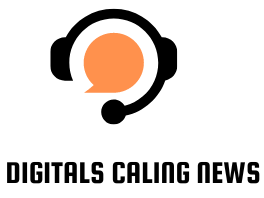Section 1: GitHub’s Commitment to Developer Rights
GitHub, the popular platform for hosting and collaborating on software projects, has taken steps to protect developers’ rights and combat abuse of the Digital Millennium Copyright Act (DMCA). While the DMCA is primarily known for safeguarding copyrighted works like movies and music, it also includes provisions that criminalize attempts to circumvent technological measures protecting copyrighted material [1]. GitHub recognizes the importance of supporting open-source developers and has partnered with Stanford Law School to provide free legal advice through the GitHub Developer Rights Fellowship [3]. This article will delve into the significance of GitHub’s efforts to defend developers’ rights and address recent legal challenges faced by the platform.
GitHub’s Commitment to Developer Rights
GitHub understands that developers need legal support to navigate the complexities of copyright law. To address this, GitHub has established the GitHub Developer Rights Fellowship, a collaboration with Stanford Law School’s Juelsgaard Intellectual Property and Innovation Clinic. This initiative aims to provide developers facing copyright takedown claims with free legal advice [3]. By offering legal counsel, GitHub empowers developers to protect their work and defend against unwarranted copyright claims.
The Digital Millennium Copyright Act (DMCA)
The DMCA was enacted to strike a balance between innovation, freedom of speech, and creative work online [2]. However, the law has faced criticism for its potential misuse and abuse. GitHub recognizes the challenges developers may encounter when dealing with DMCA takedown notices. To address this issue, GitHub offers resources and guidance on how to respond to such notices effectively. This support ensures that developers can exercise their rights while complying with legal obligations.
Recent Legal Challenges
GitHub has recently faced legal challenges related to its services. One notable lawsuit involves GitHub Copilot and OpenAI Codex, both of which utilize machine learning to generate code. A class-action lawsuit has been filed against GitHub, Microsoft, and OpenAI, challenging the legality of these tools. The suit alleges that the use of open-source code without proper attribution or licensing violates copyright laws [4]. This case highlights the need for clear guidelines and regulations surrounding the use of AI-generated code to protect developers’ rights and intellectual property.
GitHub’s Response to Legal Challenges
In response to legal challenges, GitHub has taken steps to address concerns and protect developers’ interests. GitHub, Microsoft, and OpenAI have requested that the court dismiss the class-action lawsuit, arguing that the claims lack legal merit. They assert that the plaintiffs’ allegations misinterpret the nature of open-source code and its usage [5]. GitHub’s proactive stance in defending itself and advocating for the responsible use of open-source code demonstrates its commitment to protecting developers’ rights and fostering a supportive environment for innovation.
Conclusion
GitHub’s commitment to supporting developers’ rights is evident through its collaboration with Stanford Law School’s Juelsgaard Intellectual Property and Innovation Clinic. By providing free legal advice to developers facing copyright takedown claims, GitHub empowers developers to protect their work and navigate the complexities of copyright law. Recent legal challenges surrounding GitHub’s services highlight the importance of clear guidelines and regulations in the context of AI-generated code. GitHub’s response to these challenges demonstrates its dedication to defending developers’ interests and fostering a thriving open-source community.






